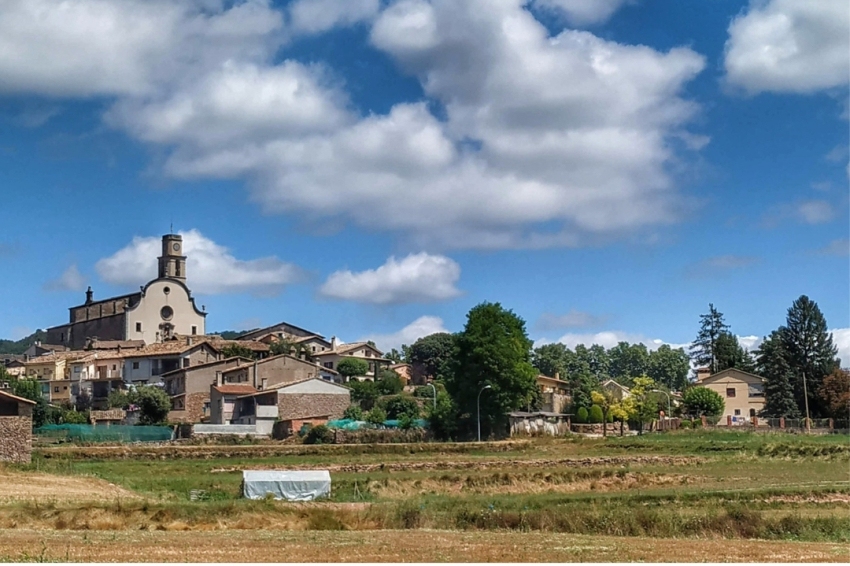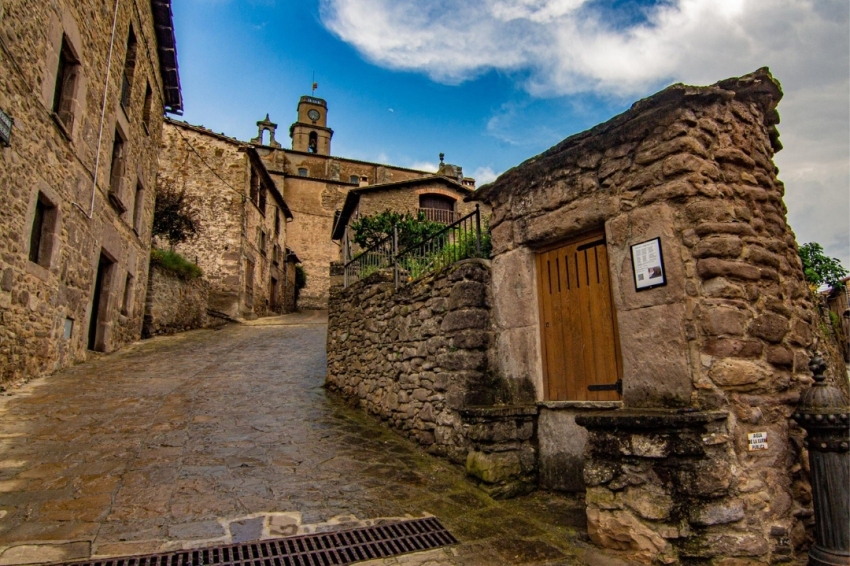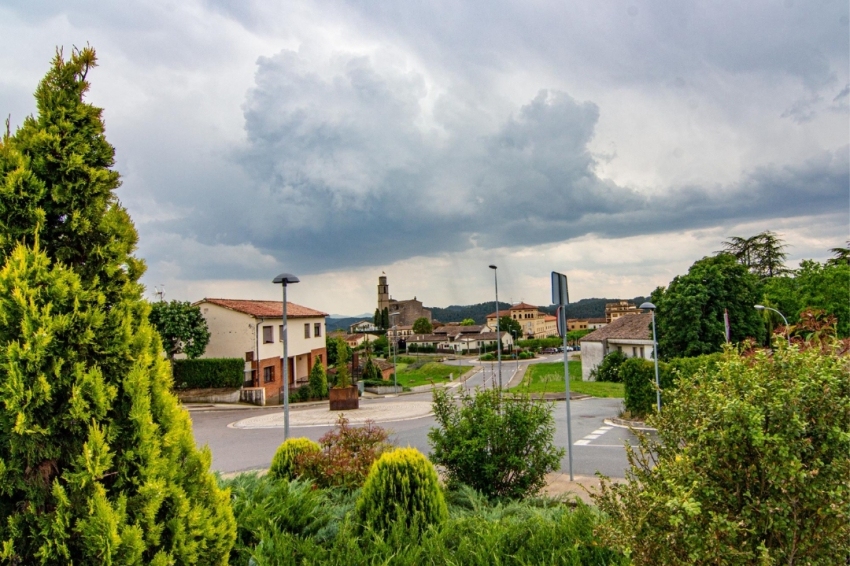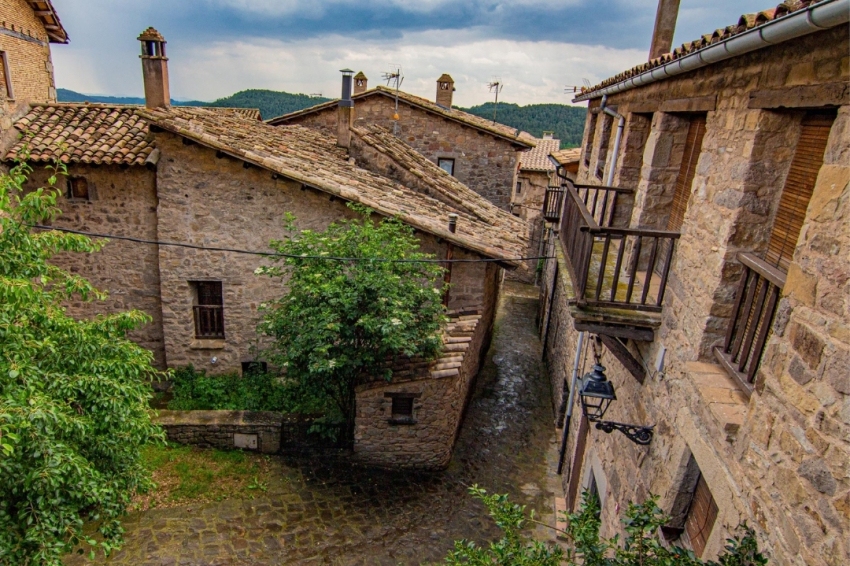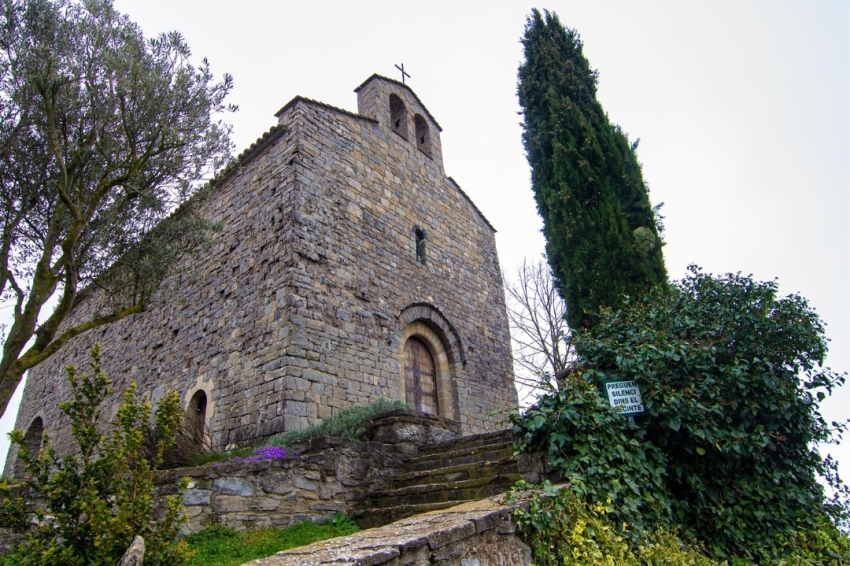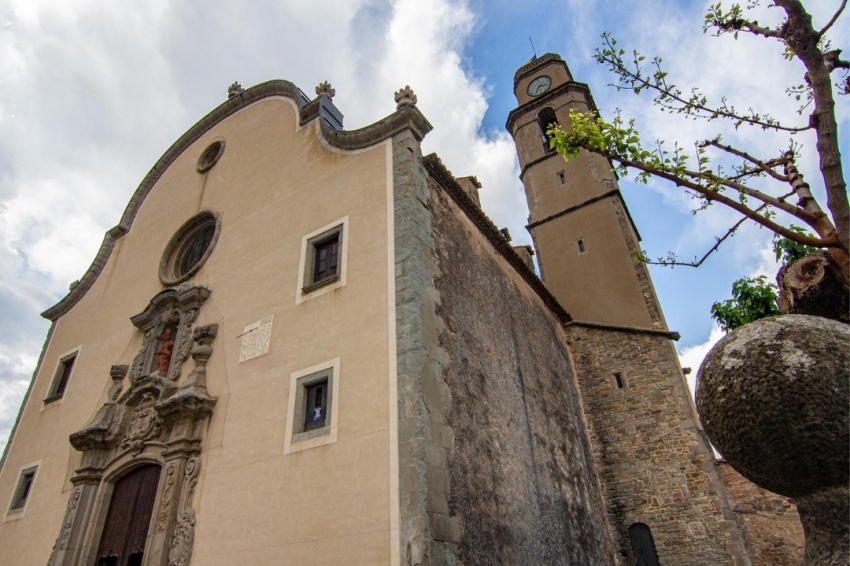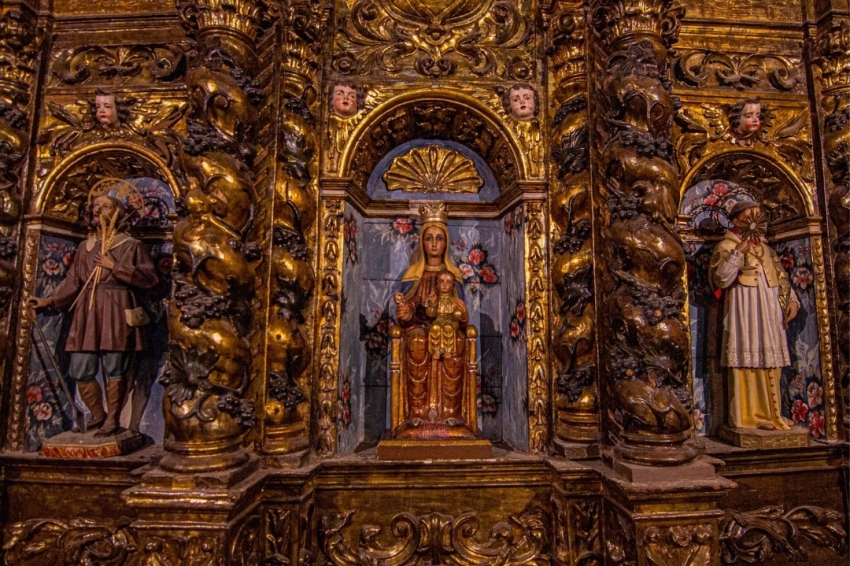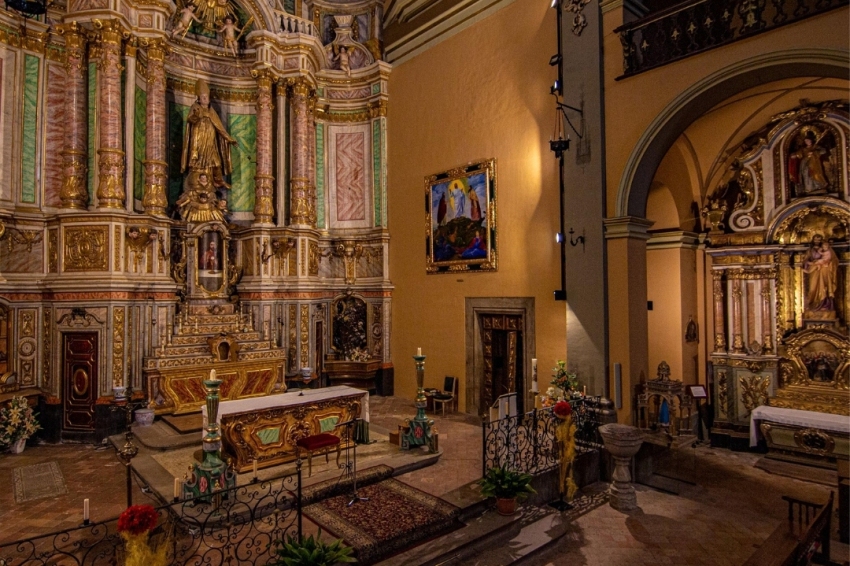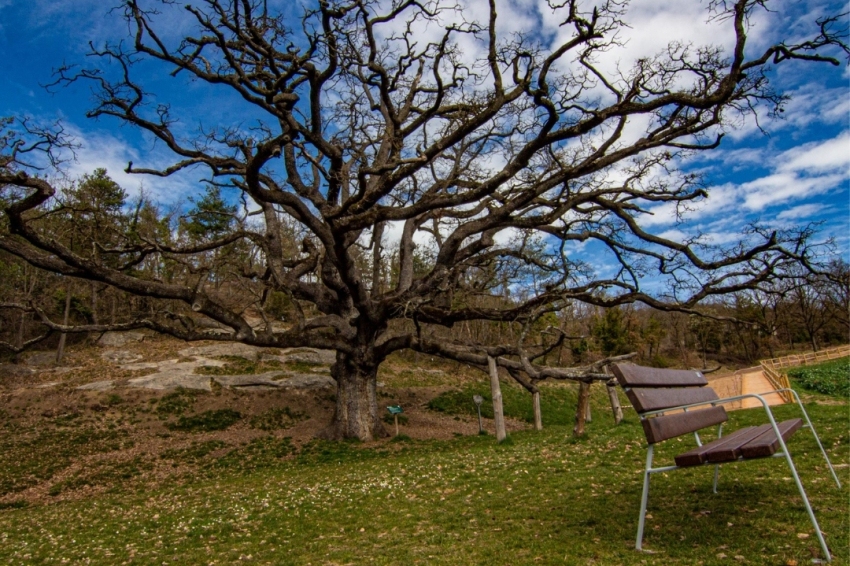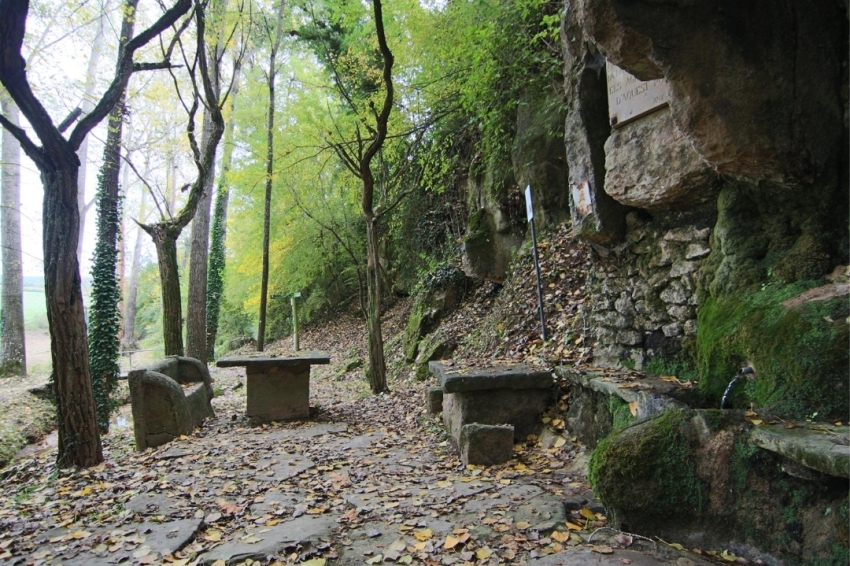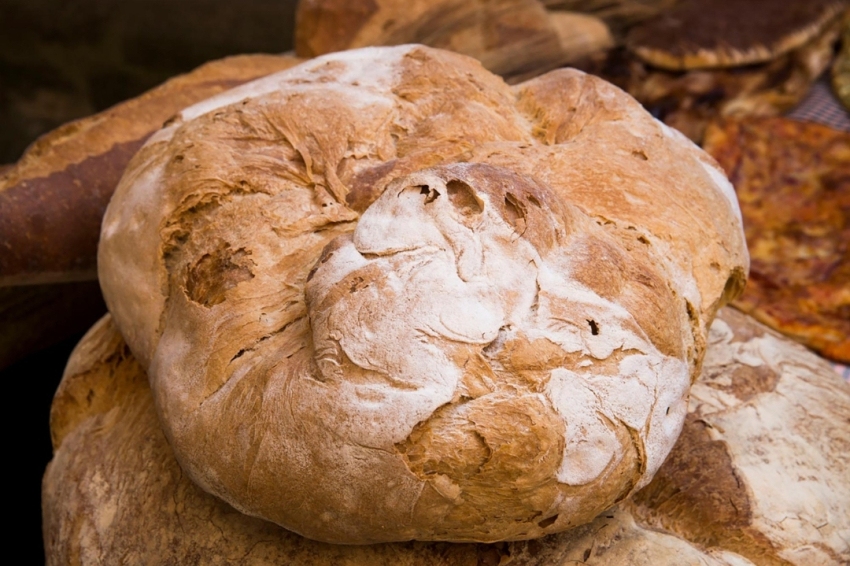Sant Boi de Lluçanès
SITUATION
Sant Boi de Lluçanès is located north of the Osona region and northeast of Lluçanès, with an area of 21.17 km2. Agriculture, forestry, industry and commerce form the local economy.
The municipal area is quite well delimited by mountain ridges, almost forming a valley. From North to East through the Els Munts mountain range (1050m), Puigcornador (977m) and the Sant Salvador mountain range (952m). From West to Midday through Vilarrasa (867m) to Cornet (857m). In the Mediodía part by the Sobremunt mountain range (892m).
URBAN CORE
The urban center is located to the northeast of the term, next to Els Munts and on a gentle slope towards the bottom of the valley, where the Sorreig stream runs, with little flow, since it rises shortly before entering the term. The town is made up of a very interesting old town, structured by old cobbled streets, and plastered and exposed stone houses, built in the 17th and 18th centuries, which have been restored and preserve portals with lintels dating from these centuries, and small squares. that adapt to the slope of the terrain.
In this area of the town we find the Center's social premises, a meeting place for Santboienses and Santboiensas to attend different cultural events throughout the year.
It dominates the majestic parish church of Sant Boi, in a neoclassical baroque style located on an elevated point and visible from many points in the municipality. It is made up of 3 naves with a Latin cross plan. Inside we can see the altarpiece presided over by the patron saint Sant Baldiri, in baroque style. The church preserves one of the most important treasures of baroque art in all of Catalonia: 8 original baroque and neoclassical altarpieces, dated between the 17th and 19th centuries, which were restored in 1999.
In the wing of the church that faces east, we find the bell tower attached. A slender figure and of considerable height (32.65m), it currently consists of four sections built at different times. From the 12th century to the 20th century, reforms and variations have been carried out.
The largest bell in the bell tower was destroyed during the war by some bricklayers from the town at the request of a committee from Manlleu. They took it cut up to obtain ammunition.
ENVIRONMENT AND NATURE
The sources are very abundant, with somewhat calcareous waters from the surroundings, fresh and of good taste on the palate. A few meters from the town center we can find the Presa fountain, the Plátanos fountain, the Atalaya fountain and the one that has the most followers is the Prada fountain, both for the quality and freshness of the water and for the charming environment where it is located, surrounded by green meadows and thick vegetation.
The forests in the area are made up of Scots pine, black pine and the well-known downy oak. The Roble de la Senyora, a protected monumental tree, is located near the Vilar, it is a century-old oak of large proportions and very visited.
HERITAGE
Located at the northeastern end of the municipality of Sant Boi de Lluçanès , the large Sant Salvador de Bellver church (Romanesque) stands out. Located at the tip of a ridge that dominates the north part of the Plana de Vic, you can enjoy beautiful views and a wide panoramic view.
Of the different large farmhouses, Vilar stands out. It is a large mansion documented since 1176, with a square body with a four-sided roof and a tower in the middle. The current building is from the 18th century, and preserves different notable elements such as the neoclassical style entrance, some canal spillways, sculpted with animal carotes, which are found under the roof of the main façade, two porch galleries with carpanel arches or the attached chapel of the Virgin of the Rosary. In the mid-19th century, the heir of Vilares married a rich heiress from Cerdanya, Lotgarda de Pedrals, uniting two large estates.
The house has two legends associated with it: the Vilar elf and the goat's jump, which tell us about the splendor of this great house.
TRADE, PRODUCTS, FAIRS AND FESTIVALS
The town is recognized for the excellent bread that can be purchased (made with an old wood-burning oven), the quality in restoration and local products. It is also a soil for mushrooms (the most important and appreciated is the chanterelle), hunting and good cuisine.
The Sant Baldiri festivities (celebrated on the days around May 20, the day of the patron saint Sant Baldiri), the Main Festival (August 15) and the quick painting contest (October 12) are events and festivals that are very loved by the villagers.
Also around October, the Tastabolet Fair is held, where local restaurants and establishments offer a tapas tasting with this ingredient as the protagonist. All this accompanied by a musical performance and the presence of inflatables and children's workshops in the town's Plaza Nova.
Nearby routes
See all routes »- Circular route through the Els Munts…
- The bread in Lluçanès
- The Vigatans' Covenant (a 4 km)
- Picnic in Barcelona area (a 6.5 km)
- The Witches of the Lluçanès (a 6.5 km)
What to do
Ratafia Bosch
Sant Quirze de Besora (a 7.3 Km)Come visit Ratafia Bosch and live the experience of discovering its history…
La Torre de l'amo de Viladomiu Nou
Gironella (a 22.8 Km)Transported back in time and enjoy a building protected as a cultural…
Where to eat
Restaurant Dachs
Les Llosses (a 10.9 Km)Restaurant Dachs offers versatile spaces for celebrations in Les Llosses, with rustic…
Restaurant Apartaments Els Roures
Castellar del Riu (a 29.6 Km)Rest, charm and good cuisine, a unique space located in Berguedà, at…
Restaurant Font Freda
Castellar del Riu (a 29.7 Km)A restaurant offering a wide selection of Catalan dishes, especially notable for…
Bar Restaurant Xato
Gironella (a 22.7 Km)Order pizzas, burgers, tapas... at Xato Bar-Restaurant and we'll deliver them to…
Where to sleep
Casa de colònies Les Codines, Fundesplai
Montesquiu (a 7.6 Km)Les Codines is located in the municipality of Montesquiu, in the Osona…
Càmping Puigcercós
Borredà (a 11.9 Km)The campsite stands out for its quiet atmosphere and familiar character, has…
Can Masover Xic
Lluçà (a 6.8 Km)Can Masover Xic is a rural house located in the Rocadenbosch farmhouse…
Events
Experiences
Masterpieces from the Museum: A Journey Through Medieval Art…
MEV, Museu d'Art Medieval (Vic) (a 16.7 Km)

